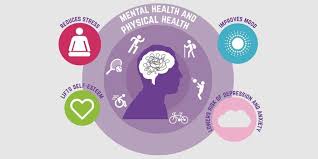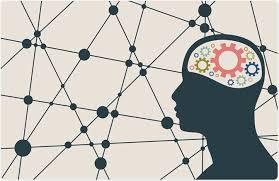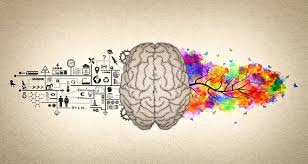Mental health is a critical aspect of overall well-being, influencing how we think, feel, and act. Despite its importance, mental health often remains shrouded in stigma and misunderstanding. However, recent research and increased awareness have revealed some truly mind-blowing facts about mental health that challenge common misconceptions and highlight the profound impact it has on our lives. Here, we explore some of the most surprising and enlightening facts about mental health that can transform our understanding and approach to mental well-being.
1. Mental Health Affects Physical Health

1.1 The Mind-Body Connection Mental health is intricately linked to physical health. Conditions like chronic stress, anxiety, and depression can lead to a range of physical health issues, including cardiovascular disease, obesity, and weakened immune response. Research shows that the brain’s stress response can trigger inflammatory processes in the body, affecting overall health.
1.2 Psychosomatic Symptoms Many physical ailments, such as headaches, fatigue, and gastrointestinal issues, can be manifestations of mental health problems. Addressing mental health concerns can lead to improvements in physical symptoms, demonstrating the critical need for integrated care approaches.
2. Mental Health Disorders Are More Common Than You Think
2.1 Prevalence of Mental Health Issues Mental health disorders are more widespread than commonly perceived. According to the World Health Organization (WHO), approximately 1 in 4 people will experience a mental health condition at some point in their lives. This statistic underscores the importance of widespread mental health support and resources.
2.2 Global Impact Mental health disorders are a leading cause of disability worldwide. They contribute significantly to the global burden of disease, affecting individuals of all ages, backgrounds, and socioeconomic statuses. Addressing mental health is crucial for improving global health outcomes and quality of life.
3. Early Intervention Can Change Lives
3.1 Importance of Early Detection Early intervention in mental health issues can have a profound impact on an individual’s long-term outcomes. Research indicates that identifying and addressing mental health problems early can lead to more effective treatment, reduced severity of symptoms, and improved overall functioning.
3.2 Impact on Youth For children and adolescents, early intervention is especially crucial. Untreated mental health issues during youth can lead to academic difficulties, social problems, and an increased risk of developing severe mental health disorders later in life. Schools and communities play a vital role in early detection and intervention efforts.
4. Mental Health Is Not Just About Disorders
4.1 Continuum of Mental Health Mental health is not simply the absence of mental illness; it exists on a continuum that includes a range of emotional and psychological states. Everyone experiences fluctuations in mental health throughout their lives, and promoting mental well-being involves supporting positive mental health, not just preventing or treating illness.
4.2 The Role of Positive Psychology Positive psychology focuses on enhancing well-being and happiness rather than solely addressing mental illness. Practices such as gratitude, mindfulness, and building resilience can contribute to improved mental health and overall life satisfaction.
5. Genetics Play a Role in Mental Health

5.1 Genetic Factors Genetics can influence susceptibility to mental health disorders. Studies have shown that individuals with a family history of mental illness are at a higher risk of developing similar conditions. However, genetics is only one piece of the puzzle, with environmental and lifestyle factors also playing significant roles.
5.2 Epigenetics Epigenetic research reveals that environmental factors can influence gene expression related to mental health. Stress, trauma, and other external factors can affect how genes are expressed, highlighting the interplay between genetics and environment in shaping mental health.
6. Mental Health Can Affect Cognitive Function
6.1 Impact on Cognitive Abilities Mental health conditions such as depression and anxiety can impair cognitive functions, including memory, attention, and decision-making. For instance, chronic stress can affect the hippocampus, a brain region crucial for memory formation.
6.2 Cognitive Behavioral Therapy Cognitive Behavioral Therapy (CBT) is an evidence-based treatment that helps individuals identify and change negative thought patterns, improving cognitive function and emotional regulation. CBT has proven effective in treating various mental health conditions and enhancing overall cognitive well-being.
7. Social Connections Are Essential for Mental Health
7.1 The Power of Social Support Social connections and support networks play a crucial role in mental health. Strong relationships with family, friends, and community can provide emotional support, reduce stress, and improve overall well-being. Loneliness and social isolation, on the other hand, are linked to adverse mental health outcomes.
7.2 Building Connections Fostering meaningful relationships and engaging in social activities can enhance mental health. Support groups, community involvement, and maintaining close relationships are important strategies for promoting mental well-being and resilience.
8. Mental Health Stigma Is a Significant Barrier
8.1 The Impact of Stigma Stigma surrounding mental health can prevent individuals from seeking help and accessing necessary resources. Negative attitudes and misconceptions about mental illness contribute to feelings of shame and isolation, exacerbating mental health problems.
8.2 Efforts to Combat Stigma Raising awareness, promoting open discussions, and educating the public about mental health can help reduce stigma. Initiatives aimed at normalizing mental health conversations and supporting those affected are crucial for improving access to care and fostering a more supportive environment.
9. Technology Is Transforming Mental Health Care
9.1 Digital Mental Health Tools Advancements in technology have led to the development of various digital tools and platforms for mental health care. Mobile apps, online therapy platforms, and virtual support groups offer accessible and convenient options for managing mental health.
9.2 Telehealth and Accessibility Telehealth services have expanded access to mental health care, particularly for individuals in remote or underserved areas. Virtual therapy sessions and online resources provide valuable support and increase accessibility to professional help.
10. Mental Health and Creativity Are Connected

10.1 The Creative Connection There is a well-documented connection between mental health and creativity. Many artists, writers, and musicians have reported that their creative processes are influenced by their mental health experiences. Creativity can serve as an outlet for expressing emotions and processing mental health challenges.
10.2 Therapeutic Benefits Engaging in creative activities has been shown to have therapeutic benefits, including stress reduction, improved mood, and enhanced cognitive function. Creative expression can be a powerful tool for promoting mental well-being and personal growth.
Conclusion
Mental health is a complex and multifaceted field that encompasses far more than just the absence of mental illness. From the profound impact of mental health on physical health to the transformative power of early intervention, the facts revealed about mental health challenge our understanding and underscore the importance of addressing mental well-being holistically. By recognizing the mind-body connection, combating stigma, and leveraging technological advancements, we can improve mental health outcomes and support individuals in leading healthier, more fulfilling lives. These mind-blowing facts not only highlight the significance of mental health but also inspire us to take action in promoting mental well-being for ourselves and others.


